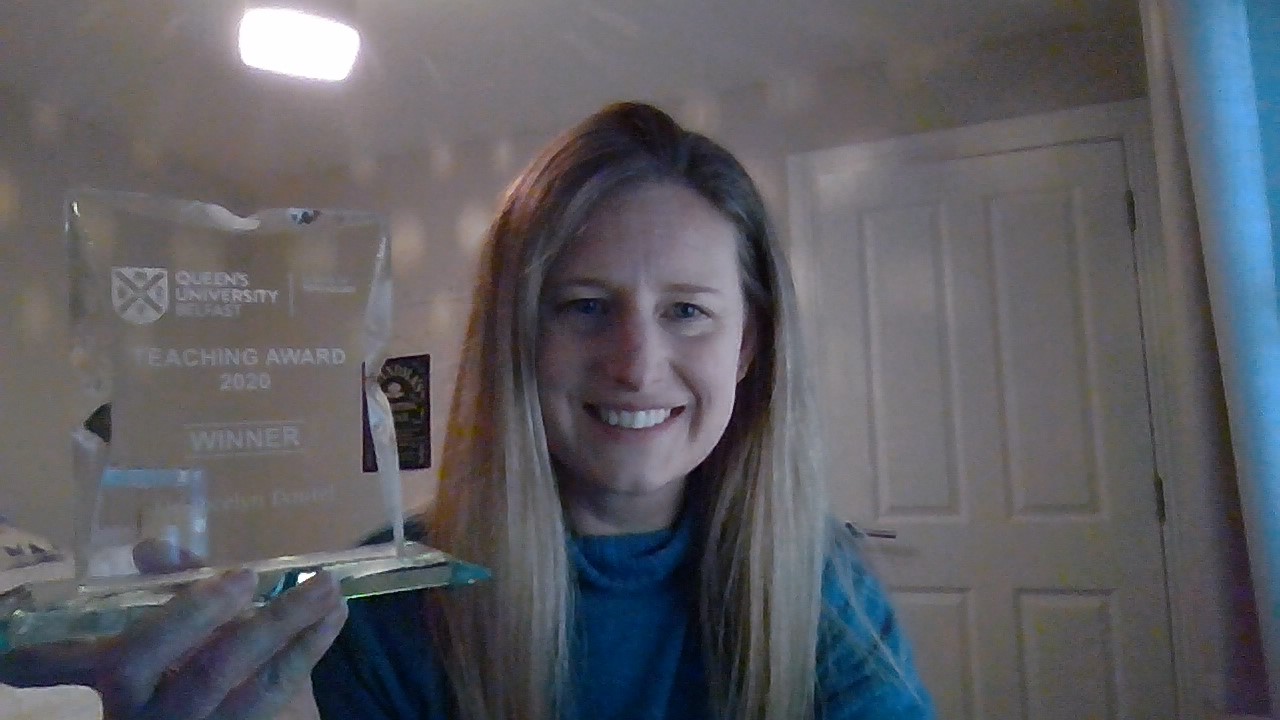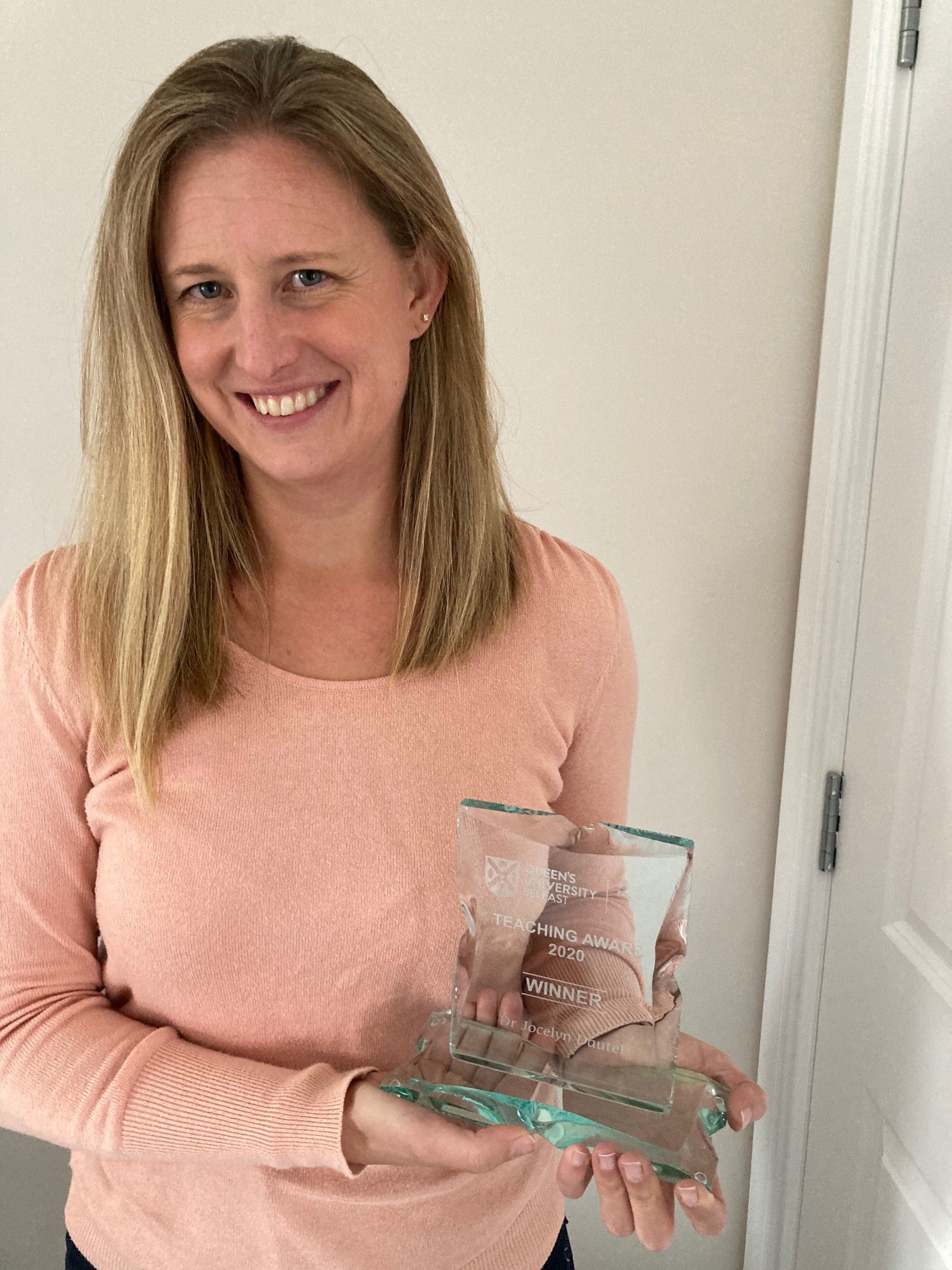Innovation in Teaching - Dr Jocelyn Dautel
School Teaching Award Winner 2020

Each year the School recognises an outstanding example of innovative and creative teaching that promotes and enhances our student experience through its annual Teaching Award.
We're delighted that this year's winner is Dr Jocelyn Dautel for her innovative work on Open Science and psychology replication studies.
Describing her approach Jocelyn explains:
"Encouraging psychology replication studies arises directly from my teaching philosophy. It is my goal to teach students not what to think, but how to think--a skill that will benefit them far beyond the classroom. To do so, I focus on creating opportunities for critical thinking, experiential learning, and peer collaboration through research, and encourage students to apply their learning to solve problems. Teaching students the importance of replication and open science will help a future generation of scientists address the replication crisis in psychology.
Typically, research projects carried out by students in tutorials within our School involve choosing a research question and designing an original study to test that question. This year, I led tutorial groups in replication studies of cutting-edge experiments. Replications have pedagogical benefits: 1) expert researchers provide a well-designed study, 2) the question is current and interesting to students, the instructor, and the scientific community, and 3) the results contribute to the field, allowing students to be an active part of the scientific community (Frank & Saxe, 2012). Moreover, replication studies are a natural avenue for critical evaluation because students must identify why the study is in need of replication by evaluating strengths and limitations of the study method, sample, or design. Then, after carrying out a replication study, students can compare and contrast their method, analysis, and interpretation of the findings with the original publication.
I engaged students in the Open Science Framework (OSF) Collaborative Replications and Education Project (CREP; osf.io/wfc6u). This is a fantastic pedagogical tool, identifying top-cited empirical papers with surprising findings or small samples and providing original resources for replications. The project also provides opportunity to contribute the findings for collaborative publication.
Students learned the experimental design and methodological and statistical reasons for replication. Overall, students were able to learn and adapt a study designed by an expert in the field investigating a relevant and interesting topic. I believe this increased students’ confidence to engage with a scientific community, both through CREP, and local conferences and publications. This is demonstrated by one student whose poster presentation of her group’s project was accepted at Northern Ireland British Psychological Society conference. Two students and I are also currently writing up their findings for publication. It is quite rare for tutorial group projects to be disseminated; teaching replication can have real benefits for students joining the local and broader scientific community.”
Reaction to the award
Jocelyn said of the Award:
"I am delighted to receive this award that recognises innovation in teaching and student research supervision. Involving students in psychology replication studies ensures student research projects are current and interesting to students, the instructor, and the scientific community".
Future work
The Award consists of a £2,000 grant which Jocelyn will use for research aimed at continuing to develop and promote research-led teaching practices in the School.
We congratulate Jocelyn on her well-deserved award and wish her continued success.

